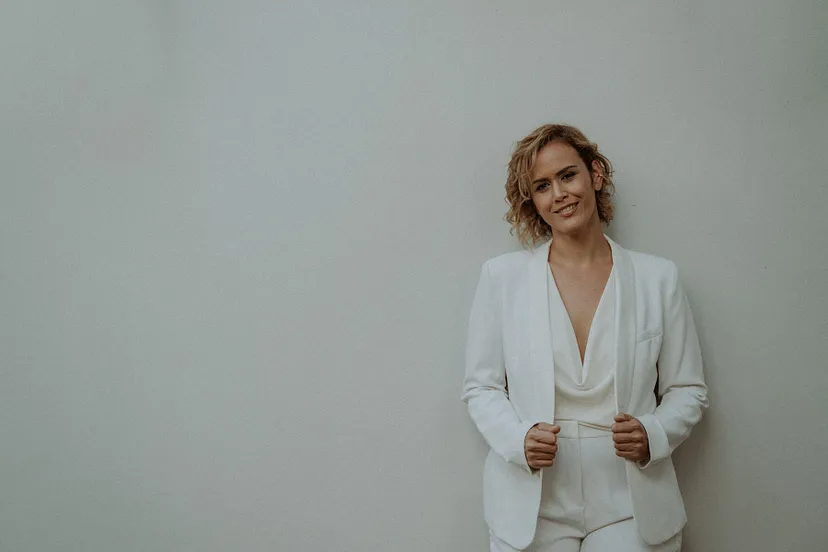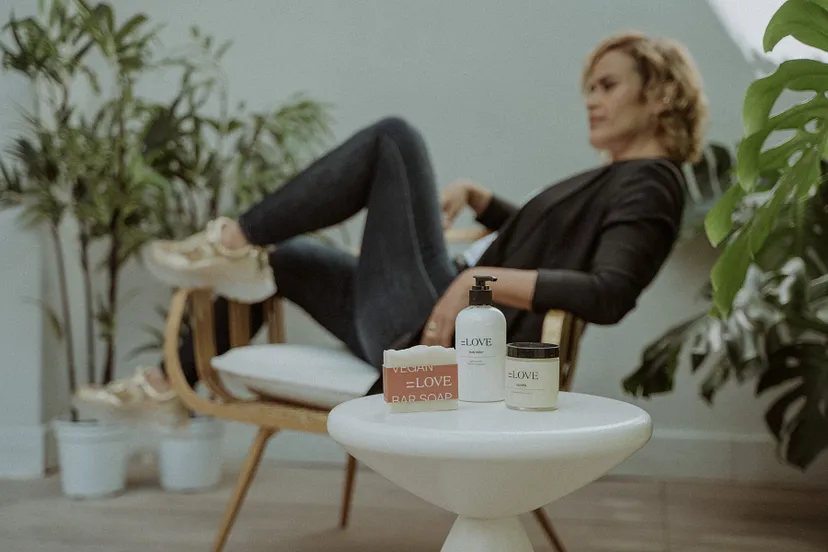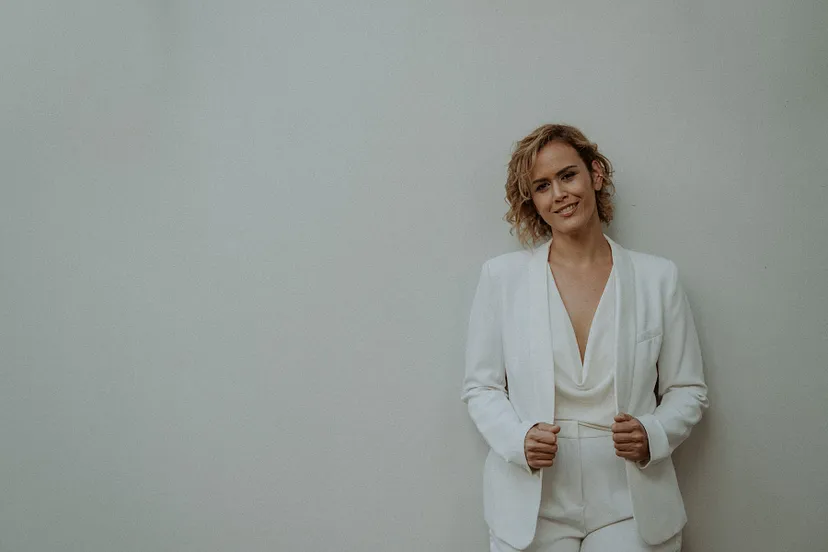
Image via Equal Love
Ana Maria Hernandez was once a lawyer who defended animal rights, the rights of pregnant and breastfeeding people, and those within the LGBTQ+ community. Her workshops on human rights were widely attended, and her inbox was constantly flooded with questions.
“There’s a need for people to know more about this information,” Ana Maria realized, “and there’s a lot of interest in knowing more about the rights of these three communities.”
Tired of gender-based stereotypes in the beauty industry — especially around smells and colors — Ana Maria created a genderless essential oil blend of products to build education and awareness around diversity. That product eventually turned into =LOVE, a line of high-quality personal care and home products that allow anyone to have a healthy and confident lifestyle, regardless of gender or any other form of self-expression.
Read this week’s Founder Feature to understand why Ana Maria doesn’t believe the stories she reads about founders on Instagram and the one piece of advice she has for budding entrepreneurs everywhere.

Image via Equal Love
digitalundivided: As a founder, what has been the biggest struggle you’ve had to overcome in building your business?
Ana Maria: My brand messaging has been one of the most significant obstacles. A lot of people think that because I’m a lesbian and because I’m an advocate for diversity, Equal Love is targeted to the LGBTQ community. It isn’t, actually. It’s actually targeted at everyone. Equal Love wants to challenge your mind about beauty products, get out of that gendered box, and try a product that is good for you. Forget about colors, smells, or gender, and try this product. It smells great! It has a unique aroma. Just think about you and whatever makes you feel good. Making people understand that, I think, has been one of the biggest challenges that we have faced.
digitalundivided: How do you ground yourself when building a company gets frustrating or taxing? How do you bring yourself back to the center?
Ana Maria: I try to remember why I’m doing it. Sometimes all entrepreneurs have thought that this might not work. Or this is not for me. And then, I try to look at why I started doing this. I try not to lose sight of the fact that I started this with a purpose. I didn’t start as just a business. This isn’t a way to, you know, create more revenue or create more money. I have always been a consumer of beauty products I love — soaps, creams, and lotions. I’ve always, always been a fan. Let me see how I can convey my message through that, so I try to focus on that when times get a little bit harder.
digitalundivided: How did participating in digitalundivided’s BIG program help you navigate your founder journey?
Ana Maria: One of the main takeaways was creating that pitch and practicing and refining it. I love it. Now I feel confident. Anytime I’m in interviews or any situation where I need to call on some of that pitch to talk about the business, I know how to do it. I think that was one of the best things that I took from that program and the one-on-one mentorship. That was amazing, too.
digitalundivided: That’s great. What advice do you have for other entrepreneurs on their journey?
Ana Maria: One of the main things that I tried to tell everyone, and being a business person, is that there are a lot of stories out there about this person that just decided one day they didn’t want to work for anybody anymore. So they bought 100 bucks in inventory. Then overnight, they became a $ 30,000-a-month online store, right?
I always say that those stories are very unusual. Instagram is designed to tell us that’s the norm. But starting a business without knowing how to build a business is horrible. It’s not an intelligent way to go. Because then you wouldn’t realize that 100 bucks in inventory rarely gets you to overnight success. You wouldn’t know that you need a lot of money to invest for the first, like, a minimum of three years. You wouldn’t know many other things that make a business profitable. So one of the first pieces of advice I would give is if you’re thinking or you’re pushed by life to be an entrepreneur, try to get as much information as you can before just throwing yourself out there. I can say it can be done. Because that’s what happened to me. But it’s a very hard road if you know if you go that way.
I also don’t believe all the BS on social media about being an entrepreneur. I see a lot of people that sell you webinars or sell you coaching. Then they show you this screenshot, and it says, “Last month, $30,000 in sales!” Then the person goes, “That’s how much I made in sales, and I’m gonna teach you how to do the same blah, blah, blah, blah, blah.”
What they are not telling you is that $30,000 in sales does not mean $30,000 in revenue or in profit. That person can have $30,000 in sales. But if they have $50,000 in expenses, they have no profit. Right? They’re sometimes giving, you know, the wrong impressions, or they’re trying to mislead people with that kind of information. So be careful with that — study research. Try to save money to invest in your business. That’s the best way to go at it.
digitalundivided: What does success mean to you?
Ana Maria: Freedom. Time and economic freedom. I like to explore other things in life. I think that’s when I would feel like I will have success. Success is to have financial freedom and time freedom, you know? Not to be so invested in the business and have the financial freedom to pursue other projects, even personal projects, like traveling more or renovating in my apartment.

